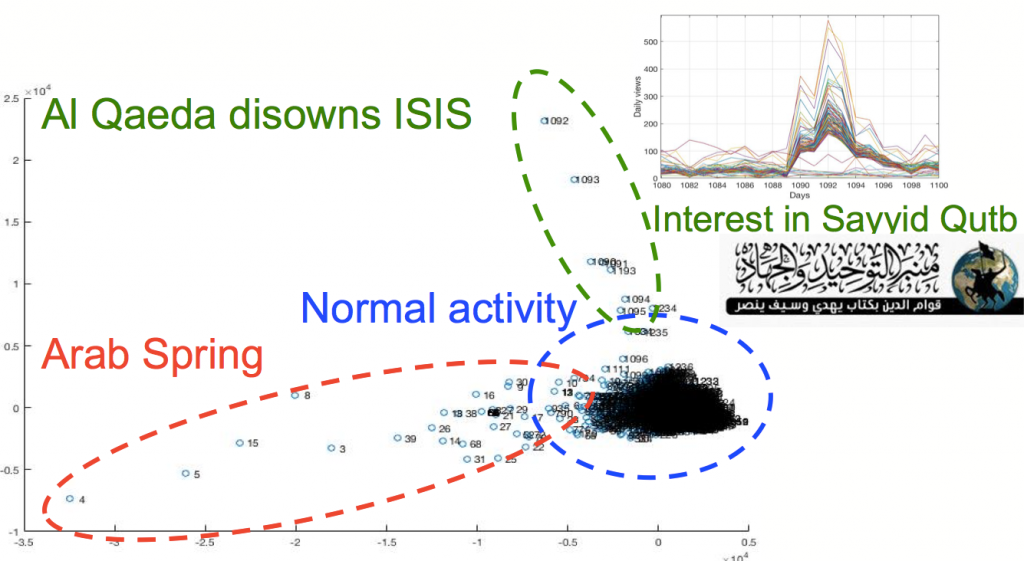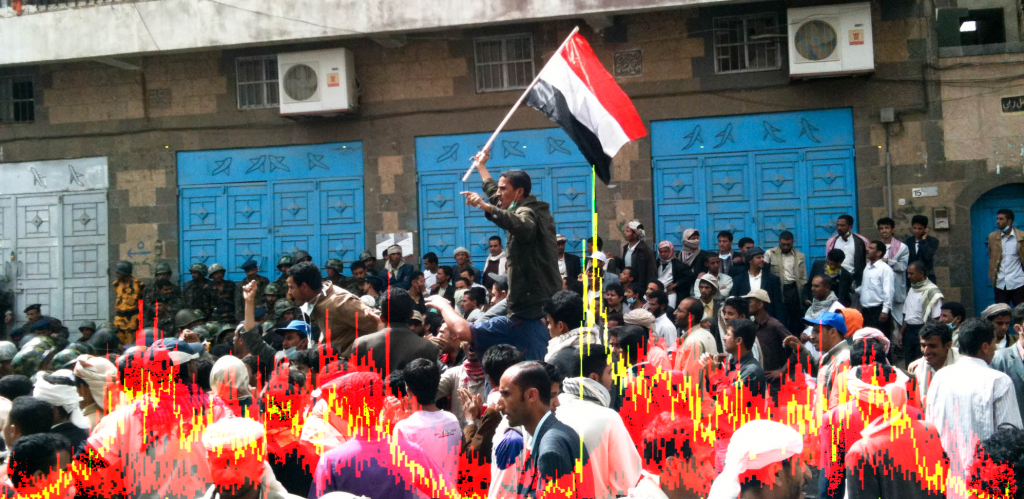Jihadist rhetoric
with Santiago Segarra and Rich Nielsen

Jihadist terrorism is a pressing issue for policy-makers and social scientists. Using data from 50 million page views on a jihadist website, we investigate what makes some jihadist writings more popular than others, and whether killing and capturing jihadist thinkers is an effective policy tool for reducing the popularity of their ideas. We find that the identity of the author is the strongest predictor of baseline popularity among jihadist readers. When authors are killed, the popularity of their documents temporarily increases, but we find no long-term effect. Fears that counterterrorism efforts will inadvertently repopularize jihadists’ ideas are overblown, but counterterrorism efforts do not appear to make jihadists’ ideas less popular either. We also find that key events in the development of the Islamic State coincide with temporary increases in the popularity of texts by Sayyid Qutb, a founding father of the jihadist movement. The consumption patterns of jihadist texts open a window into the jihadist psyche, which may lead to the understanding of how their thinking is shaped.
- S. Segarra, R. Nielsen and A. Jadbabaie, What Makes a Jihadist Text Popular?, Proc. National Academy of Sciences, vol. (under review), 2018.
Drone strikes in Yemen
with Paolo Bertolotti and Fotini Christia
Drone strikes are increasingly used in conflict areas across the world, yet little information about their impact on local communities is available due to high secrecy and associated data limitations. We use cell phone data to analyze the effects of these violent shocks on patterns of communication in Yemen, to see how drone strikes affect daily life and the social structure within networks.
Social media and polarization in a post-fact world
with Manon Revel, Amir Tohidi, Dean Eckles, and Adam Berinsky
Fake news is big news. In the wake of the 2016 Presidential election and the weaponization of information across the globe, long simmering concerns about the rise of misinformation has risen to the forefront. Misinformation and disinformation pose a fundamental threat to democracies worldwide. We propose a broad-based effort to provide solutions to these important problems. The scholars on our team have been studying polarization and misinformation for several years – both individually and collectively – and we bring a diverse set of tools and perspectives to these critical issues. The advent of the age of social media was premised to bring a new era of democratization of information, of a more connected world without boundaries, and a more harmonious society. Yet, after adoption by billions of people, instead of making the society more informed and enlightened, social media and its advertising-based monetization scheme have brought us to the age of post-truth politics. Algorithmic news gathering and monetization of fake news may have made us more divided as a society, with profound implications for the polarization of public discourse. Led by a multidisciplinary team of faculty across MIT and IDSS, our goal is to build a program that advances understanding of misinformation and polarization and the potential role of social media in fostering or mediating such conflict.
Effect of Content Recommendation Networks (CRNs) on credibility of news publishers
with Manon Revel, Amir Tohidi, Dean Eckles, and Adam Berinsky
